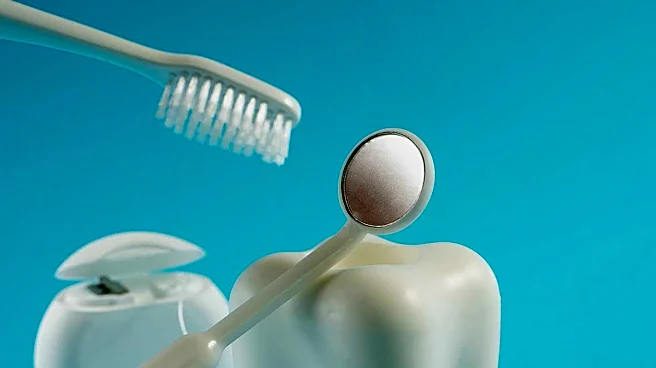What's Happening?
A naturopathic doctor, known as Dr. Mac, emphasizes the importance of flossing after every meal to reduce the risk of heart attacks and dementia. This practice is supported by scientific studies linking oral hygiene to overall health benefits. Research indicates that bacteria causing gum disease can travel to the brain, potentially leading to memory loss and dementia. Additionally, poor oral hygiene is associated with increased risks of heart disease and stroke, highlighting the broader health implications of maintaining good dental habits.
Why It's Important?
The connection between oral health and systemic diseases underscores the need for public awareness and preventive measures. Flossing, a simple and cost-effective practice, can significantly impact health outcomes, reducing the likelihood of serious conditions like heart disease and dementia. This information is crucial for healthcare professionals and individuals seeking to improve their health through accessible means. It also highlights the interconnectedness of bodily systems and the importance of holistic health approaches.
What's Next?
As awareness grows, healthcare providers may increasingly advocate for improved oral hygiene practices as part of routine health maintenance. This could lead to more comprehensive health education programs and initiatives aimed at reducing the prevalence of related diseases. Individuals might adopt regular flossing as a preventive measure, potentially influencing public health trends and reducing healthcare costs associated with heart disease and dementia.
Beyond the Headlines
The emphasis on oral hygiene reflects broader trends in preventive healthcare, where simple lifestyle changes can have profound effects on long-term health. It also raises ethical considerations regarding access to dental care and the need for equitable health education across different demographics. The integration of oral health into general health practices may shift cultural perceptions of dental care from cosmetic to essential.











